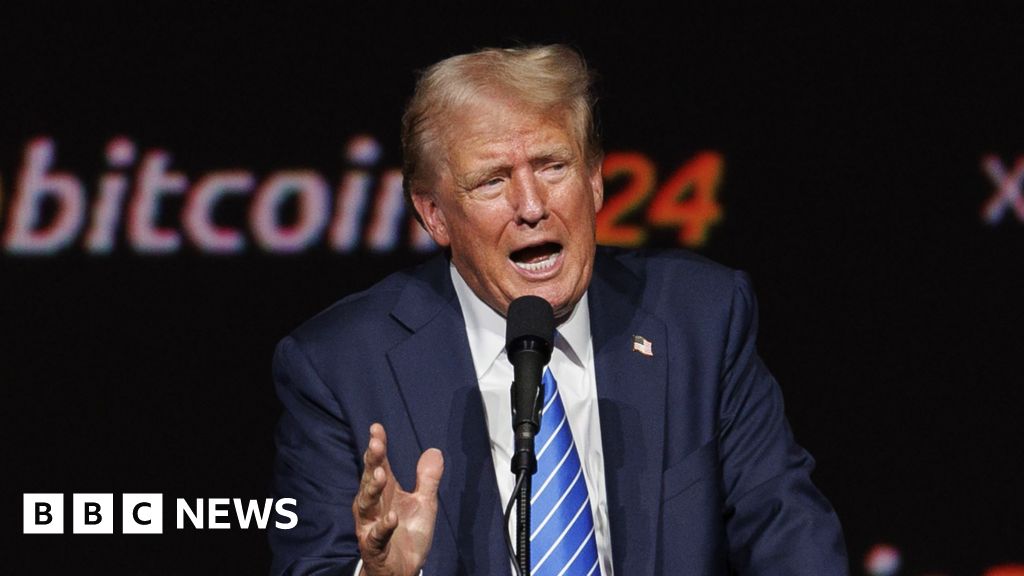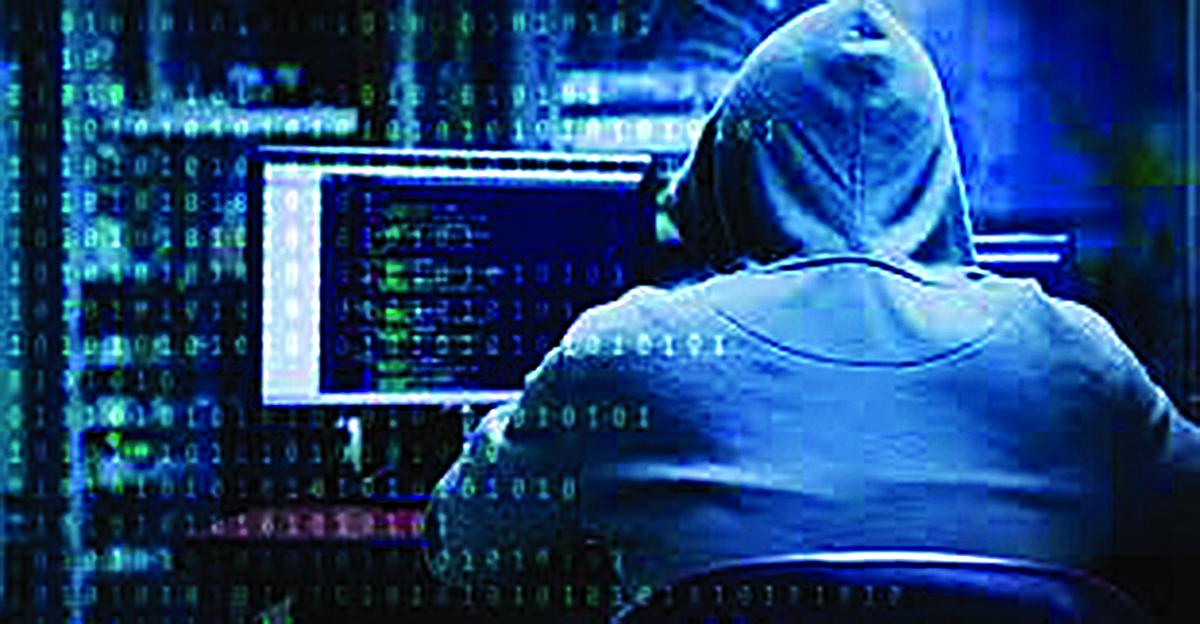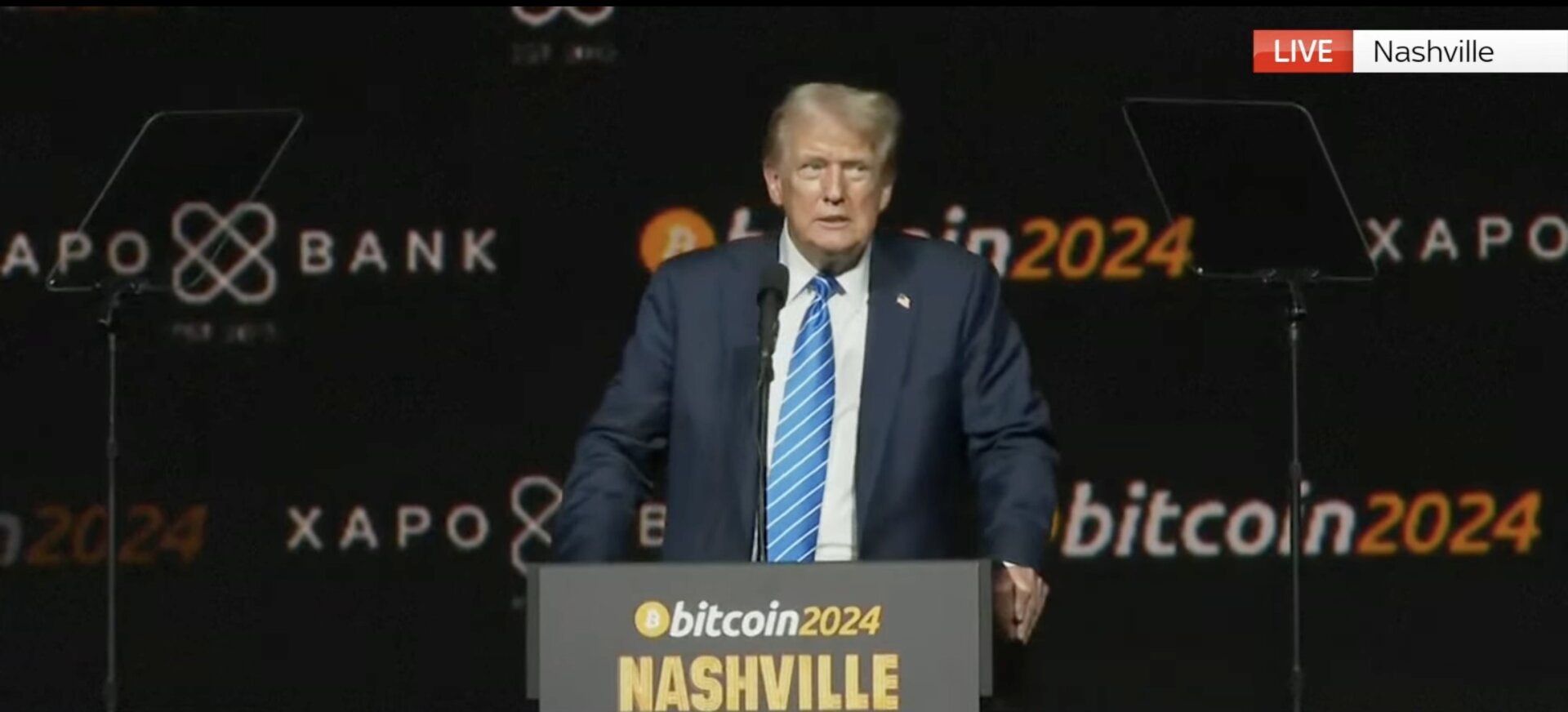Tech
Rarimo’s Freedom Tool integrates blockchain technology with voting

In an era where digital innovation intersects with democratic processes, Rarimo’s latest development – the “Freedom Tool” – aims to shake up the landscape of electoral systems.
Rarimo has introduced a digital identity protocol designed to revolutionize the way we think about voting and personal privacy. zero knowledgeThe voting platform enables the creation of secure, tamper-proof voting systems where individuals can freely express their opinions without worrying about privacy violations or authoritarian repercussions.
Unlike traditional voting mechanisms, Freedom Tool leverages blockchain technology and identity management to ensure that every vote is anonymous and verifiable.
Rarimo co-founder Lasha Antadze spoke to crypto.news about the origins of the Freedom Tool, how it fights voter fraud, and the importance of supporting democracy and personal freedom.
The Freedom Tool appears to be an innovative application for anonymous elections and surveys. How did the idea come about and what motivated the Rarimo community to develop this solution?
Antidze: Identity is central to the vast majority of online interactions, but web3 was missing a layer of identity, so we wanted to provide it. However, we also wanted to incorporate privacy into this layer. Identity can’t work without it, and ZKPs have allowed us to overcome the identity limitations of the blockchain, mainly the fact that everything on the chain is visible to anyone and everyone. Voting is a great example of where you need to prove your identity but maintain your privacy, but it’s just one of many such use cases.
With over 64 elections around the world in 2024, how do you envision Freedom Tool addressing issues like voter fraud, voter intimidation, and voter control in various countries?
Freedom Tool enables polling and voting that is not only unsupervised, but also citizen-run. Communities are free to set their own electoral terms, defining which candidates are on the ballot and who can vote. In regions where the opposition is prevented from running and minority groups are systematically excluded from voting, this ability will bring power back to the people. The Freedom Tool represents a class of technology designed not simply as an improvement or fix to the shortcomings of existing systems. It is instead conceived as a parallel solution, fundamentally aimed at guaranteeing the fundamental human right to free speech.
The first field implementation will take place in an Eastern European regime. Can you elaborate on the challenges of implementing the instrument in such regions and the potential impact on opposition and minority groups?
In totalitarian environments, the Freedom Tool enables opposition to survive. In the Eastern European country where the first implementation of the Freedom Tool is being launched, it will provide one of the few safe avenues for dissent. This not only gives dissidents a voice, but also allows them to organize and unite. The polling and voting capabilities can be used for everything from electing an opposition leader to defining the central issues to focus on. Critically, the sentiment it reflects and the number of users it attracts will assure dissidents that they are not alone and encourage them to keep fighting.
How the Freedom Tool aligns with Satoshi Nakamotothe original vision of to empower individuals and decentralize power, extending beyond finance to embrace personal identity and freedom?
Freedom Tool is a continuation of Satoshi’s Goal: Put power in the hands of the people. Blockchain’s journey began with the separation of money and state, and Freedom Tool aims to extend this principle to identity, which is equally essential to individual freedom in the modern era.
Can you elaborate on the key features of Freedom Tool and how it leverages blockchain technology and zero-knowledge identity management for secure and anonymous voting?
With Freedom Tool, citizens prove their eligibility by scanning their biometric passports with their phones. The data on the biometric chip inside the passport is verified, and once authenticity is confirmed, an anonymous voting pass is issued. The citizen then uses this pass to cast their vote. Zero-knowledge encryption is used to sever any link between the voting pass and the passport data so the two cannot be matched. When the ID and voting pass cannot be matched, neither can the citizen and their vote.
Passport data never leaves the mobile device used for scanning. This means that the data never passes through a server and there are no places where it could be intercepted. In addition to protecting citizens from surveillance, Freedom Tool uses blockchain to protect votes from manipulation. All votes are published directly to the blockchain where they are tamper-proof and publicly verifiable.
Ballots run as smart contracts on the blockchain, where the criteria for who can vote and on what topic can be predefined. Cards can be sent by anyone over a network, but require a support threshold to become active. A more detailed technical description can be found in our White paper.
Integrating the Freedom Tool into an Eastern European regime implies direct involvement in political processes. How does the Rarimo community address potential challenges or government opposition in implementing such tools?
A “tool of freedom” is a piece of technology with an open source basis, allowing anyone in the world to use and modify it for various purposes, from political to commercial. There is no mechanism for its contributors or others in the ecosystem to control or stop its evolution.
Incentives for grassroots implementation are driven by actors who discover the tool and, ideally, align with the original vision behind its creation. It is crucial to understand that the developers of this tool are not pursuing any political agenda through their technological contributions. Their core belief is in individual empowerment and a belief in free speech.
RariMe, the MetaMask Snap introduced by Rarimo, focuses on digital identity management. How does this integration align with Rarimo’s broader vision of a decentralized, privacy-focused Internet?
The macro vision is to ensure that users have control over their digital identities. Freedom Tool is just one of many identity solutions built with Rarimo that put privacy and ownership of identity back in the hands of the individual.
MetaMask Snap is another. It integrates self-sovereign identity into the broader web3 ecosystem, allowing users to store their credentials and maintain control over how they are used, generating ZKPs on demand. This contrasts with the current web2 identity model, which forces us to rely on centralized identity providers.
Given the rapidly evolving landscape of blockchain technology and digital identity, what future developments or improvements does Rarimo have in the pipeline to further disrupt the industry?
The main innovation at the heart of Freedom Tool was ZKPs for biometric passports. This introduces a level of privacy to one of the most universal forms of identity: passports.
Voting is just one of many cases where you might want to prove your age or citizenship and know that there is no chance your personal information will be accessed or disclosed. There are several use cases for this technology that the Rarimo community intends to develop.
More generally, Rarimo is a universal access and verification layer digital identities. The protocol provides a structured way for third-party apps to connect and verify information from a variety of issuers. We plan to continue to bring interoperability to the decentralized identity space so users can seamlessly transition their identities across web3.
The Rarimo ecosystem is built on the principles of self-sovereignty and self-managing identities, using blockchain, decentralized identifiers (DIDs), zero-knowledge technology, and various decentralized identity standards to give users control over their online presence.
Its development is highly horizontal and collaborative. This approach excites me personally because I see innovative, non-Defi-related applications arising from the combination of decentralized identity with blockchain technology.
Tech
The Information Hires Peterson to Cover Tech, Finance, Cryptocurrency

My life is nice
Tech news site The Information has hired Business Insider actress to cover technology, finance and cryptocurrencies.
She was part of Business Insider’s investigative team. She was also previously a corporate technology reporter and a technology deals reporter.
Peterson has been with Business Insider since June 2017 and is based in the San Francisco office.
She previously worked for Folio as an associate editor. She holds a bachelor’s degree from the University of California-Davis and a master’s degree from New York University.
Chris Roush
Chris Roush is the former dean of the School of Communications at Quinnipiac University in Hamden, Connecticut. Previously, he was the Walter E. Hussman Sr. Distinguished Professor of Business Journalism at UNC-Chapel Hill. He is a former business reporter for Bloomberg News, Businessweek, The Atlanta Journal-Constitution, The Tampa Tribune, and the Sarasota Herald-Tribune. He is the author of the leading business journalism textbook, Show Me the Money: Writing Business and Economics Stories for Mass Communication, and of Thinking Things Over, a biography of former Wall Street Journal editor Vermont Royster.
Tech
Trump Courts Crypto Industry Votes, Campaign Donations

About the article
- Author, Brandon Livesay
- Role, BBC News
-
July 27, 2024
Donald Trump said at one of the biggest cryptocurrency events of the year that if he is re-elected president, he will fire the chairman of the U.S. Securities and Exchange Commission (SEC) on his first day.
On Saturday, Trump was the keynote speaker at Bitcoin 2024, a gathering of industry heavyweights in Nashville, Tennessee.
The Republican presidential candidate used the event to woo voters and encourage the tech community to donate to his campaign.
Cryptocurrencies have emerged as a political battleground for Republicans, with Trump saying that the Democratic Party and Vice President Kamala Harris were “against cryptocurrencies.”
The crowd was at its most animated when Trump declared, “On day one, I will fire Gary Gensler,” the SEC chairman appointed by now-President Joe Biden. The crowd applauded loudly and began chanting “Trump” at this statement.
SEC files charges against ‘Cryptocurrency King’ Sam Bankman-Frittosentenced to 25 years for stealing billions of dollars from customers of his cryptocurrency exchange FTX.
Speaking for about 45 minutes, Trump outlined some of his ideas for the industry if he wins the November election. He said he would make the United States the crypto capital of the world. His support for the sector is a 180-degree reversal from his comments in 2021, when he told Fox Business he saw Bitcoin as a “scam” that influence the value of the US dollar.
Trump told the crowd at the event that he would retain 100% of the Bitcoin currently owned or acquired by the U.S. government, adding that it would be a “national stockpile of Bitcoin.”
The former president also said he would “immediately appoint a presidential advisory council on Bitcoin and cryptocurrencies.”
He talked about the power needed to mine cryptocurrencies. “It takes a lot of electricity,” he said, adding that he would build power plants “to do that” and that it would “use fossil fuels.”
In recent months, some tech leaders have seen growing support for Trump’s presidential campaign. Tesla founder Elon Musk, who is the world’s richest person, has backed Trump. And cryptocurrency moguls the Winklevoss twins, who attended his speech on Saturday, have also come out in support.
Trump noted that his campaign accepts cryptocurrency donations, saying that in the two months since allowing cryptocurrency transactions, he has received $25 million (£20 million) in donations. However, he did not say how much of the payments came from cryptocurrency.
Trump used his speech to frame cryptocurrency regulation as a partisan issue, saying the Biden administration was “anti-crypto.”
Several Republican lawmakers also attended Trump’s speech, including Senators Tim Scott and Tommy Tuberville. Former Republican presidential candidate and Trump ally Vivek Ramaswamy was also in attendance.
The event was also attended by independent presidential candidate Robert F Kennedy Jr. and Democratic Party congressmen Wiley Nickel and Ro Khanna.
Earlier, during Bitcoin 2024, Democratic Congressman Nickel said that Kamala Harris was taking a “forward-thinking approach to digital assets and blockchain technology.”
Tech
WazirX Crypto Exchange Hack and Its Bounty Program: What Does It Mean for Crypto Investors in India?

On July 18, India Cryptocurrency exchange WazirX has been hit by a cyber attack which resulted in the loss of over $230 million worth of digital assets from one of its wallets. The exchange responded by suspending regular trading and reporting the incident to Indian authorities and other cryptocurrency exchanges. The company also launched two reward programs for ethical hackers who can help the exchange trace, freeze, and recover stolen funds.
WazirX said there was a cyberattack on a multi-signature wallet operated through a digital asset custodian service known as Liminal. Multi-signature wallets have a built-in security feature that requires multiple parties to sign transactions.
“The impact of the cyberattack is over $230 million on our clients’ digital assets,” WazirX said in a blog post, adding that INR funds were not affected. The company has firmly denied that WazirX itself was hacked and has brushed aside rumors that it was tricked by a phishing attack.
The exchange also noted that it was “certain” that its hardware keys had not been compromised, adding that an external forensic team would be tasked with investigating the matter further.
But Liminal, after completing its investigation, said: “It is clear that the genesis of this hack stems from three devices compromised by WazirX.”
Meanwhile, WazirX founder and CEO Nischal Shetty said that the attack would have been possible only if there were four points of failure in the digital signature process.
Who is behind the cyber attack?
WazirX has not yet disclosed the suspected parties or perpetrators responsible for the hack. However, news reports have emerged that North Korean hackers were responsible for the incident.
On-chain analytics and other information indicate “that this attack was perpetrated by hackers affiliated with North Korea,” blockchain analytics platform Elliptic said.
In response to The Hindu’s questions to WazirX about the North Korean hackers, cryptocurrency exchange WazirX directed us to its blog and said it was working with law enforcement to investigate whether a known malicious group was behind the attack.
“This incident affected the Ethereum multisig wallet, which consists of ETH and ERC20 tokens. Other blockchain funds are not affected,” WazirX said in its official blog, specifying that approximately 45% (according to preliminary work) of cryptocurrencies were affected by the attack.
The company largely placed the blame on the process of securing Ethereum multisig wallets and said that the vulnerability was not unique to WazirX.
How important is WazirX in the cryptocurrency industry?
WazirX calls itself India’s largest cryptocurrency exchange by volume. As of June 10, it reported total holdings of ₹4,203.88 Crores, or 503.64 million USDT. Tether [USDT] It is a stablecoin, that is, a cryptocurrency pegged to the value of the US dollar, but it is not an official currency of the United States.
When The Hindu tried to access WazirX Public and Real-Time Reserve Proof After the hack, we were greeted with a notice that the page was under maintenance.
WazirX has received both positive and negative reviews in India. The Enforcement Directorate froze the exchange’s assets in 2022, criticizing its operating procedures and lax Know-Your-Customer (KYC) and Anti-Money Laundering (AML) regulations.
“By encouraging obscurity and adopting lax AML norms, it has actively assisted around 16 accused fintech companies in laundering proceeds of crime using the cryptocurrency route. Accordingly, equivalent movable assets amounting to Rs 64.67 Crore in possession of WazirX have been frozen under the PMLA, 2002,” the ED said in a statement.
What will happen to WazirX assets?
It is unlikely that the stolen WazirX assets will be fully recovered anytime soon. This is due to the very nature of cryptocurrency, where assets can be easily mixed, transferred, converted, and sent to anonymous wallets. The chances of asset recovery are even slimmer if it is confirmed that North Korean hackers are behind the incident.
CEO Shetty said on X on July 22 that “small” portions of the stolen funds had been frozen, but declined to provide further details. He added that the majority of the funds had not been moved from the attacker’s wallet.
In recent years, North Korean hackers have stolen billions of dollars in cryptocurrency, aiming to circumvent various financial and economic sanctions.
WazirX is currently working to resume normal operations and has planned to launch an online survey to decide how to resume trading on the platform.
While the Indian exchange has defended its security practices and highlighted the challenges facing the cryptocurrency industry as a whole, savvy crypto traders will be looking for action plans and accountability, rather than emotional reassurance.
What does your rewards program consist of?
WazirX has announced two bounty programs: one to gain more information about stolen funds, and the other to recover them. Both programs are open to everyone except WazirX employees and their immediate family members.
Under the first program, WaxirX will reward up to $10,000 to anyone who can provide the exchange with information that can help freeze the funds. If the bounty hunter is unable to freeze the funds on their own, they should work with WazirX by providing enough evidence to facilitate the process.
But “if the participant fails to freeze and/or does not cooperate with WazirX to facilitate the freezing of funds, then the participant will not be entitled to any rewards,” the exchange said.
The second program, called White Hat Recovery, is aimed at recovering funds. Participants are offered 10% of the amount recovered as a white hat incentive.
“This reward will be paid only after and subject to the successful receipt of the stolen amount by WazirX. The above rewards will be payable in USDT or in the form of recovered funds at the sole discretion of WazirX,” the exchange noted.
The bounty programs are expected to last for the next three months.
This is a Premium article available exclusively to our subscribers. Read over 250 premium articles each month You have exhausted your limit of free articles. Support quality journalism. You have exhausted your limit of free articles. Support quality journalism. X You have read {{data.cm.views}} of {{data.cm.maxViews}} free articles. X This is your last free article.
Tech
Trump Vows to Make US ‘Crypto Capital of the Planet and Bitcoin Superpower’

Speaking to a crowd of supporters at the Bitcoin 2024 Conference in Nashville, Tennessee, former President and Republican candidate Donald Trump said that if elected, he would make the United States the “crypto capital of the planet and a Bitcoin superpower.”
Trump added that he would “appoint a Presidential Advisory Council on Bitcoin and Cryptocurrencies,” which would have 100 days to “design transparent regulatory guidance that will benefit the entire industry.”
Trump has publicly opposed cryptocurrencies until recently. His latest statements serve as a rallying cry for a tech industry that has long called for more flexible regulatory oversight.
Shortly after taking the stage, Trump spent several minutes naming some of the conference attendees, at one point describing Winklevoss Twins Cameron and Tyler as “male role models with big, beautiful brains.” The former president has continued to speak out against electric car mandates and called for more fossil-fuel burning power plants.
Trump also said he would order the United States to withhold all Bitcoin it currently owns “in the future.” The U.S. government reportedly holds billions of dollars in Bitcoin.
About three years ago, Trump called Bitcoin “a fraud“that is “competing against the dollar.” In February 2024, the former president said that establishing a central bank digital currency would represent a “dangerous threat to freedom.” Yet, in May, Trump declared that he was “good with [crypto]“, adding, “if you’re pro-cryptocurrency you’d better vote for Trump.” That same month, he said he would commute with the Silk Road founder Ross Ulbricht’s Sentencingand his campaign said it would accept cryptocurrency donations.
Recent comments from Trump and independent presidential candidate Robert F. Kennedy Jr. have helped make cryptocurrency regulation a major political issue in the 2024 U.S. presidential election. This comes as the SEC intensifies its scrutiny of the cryptocurrency industry. SEC Chairman Gary Gensler, appointed by President Joe Biden, called the activity “full of fraud, scams, bankruptcies and money laundering.” Trump drew applause at the conference after promising to “fire” Gensler. (U.S. presidents have the power to appoint the heads of many federal commissions, including the SEC.)
With Biden out of the raceVice President Kamala Harris’s campaign advisers have He is said to have contacted to cryptocurrency leaders in an effort to “reset” relations with the industry. Harris’s campaign has not yet said whether her stance on the industry differs from Biden’s.
-

 Tech12 months ago
Tech12 months agoThe Latest Tech News in Crypto and Blockchain
-

 Altcoins9 months ago
Altcoins9 months agoAltcoins Are Severely Undervalued, Awaiting Ethereum Move | Flash News Detail
-

 News9 months ago
News9 months agoAI meme Raboo and crypto newbie ZRO
-

 Altcoins9 months ago
Altcoins9 months agoAltcoins Correct Amid ETH Decline, Grayscale Outflows | Flash News Detail
-

 DeFi9 months ago
DeFi9 months agoIf You Missed BONK and PEPE This Year, This Viral New Crypto Might Be Your Salvation
-

 Tech9 months ago
Tech9 months agoLogan Paul Offers Partial Refund for Failed CryptoZoo Game
-

 News9 months ago
News9 months agoDonald Trump vows to make the US a ‘Bitcoin superpower’ and create a national stockpile of tokens
-

 DeFi9 months ago
DeFi9 months agoIf You Missed BONK and PEPE This Year, This Viral New Crypto Might Be Your Salvation
-

 Altcoins9 months ago
Altcoins9 months agoAltcoins set to make new crypto millionaires during summer rally
-

 DeFi12 months ago
DeFi12 months ago🪂EigenLayer Airdrop Claims Go Live
-

 DeFi12 months ago
DeFi12 months ago🥛 The “war on DeFi” continues ⚔️
-

 Videos12 months ago
Videos12 months agoLIVE FOMC 🚨 Could be CATASTROPHIC for Altcoins!





